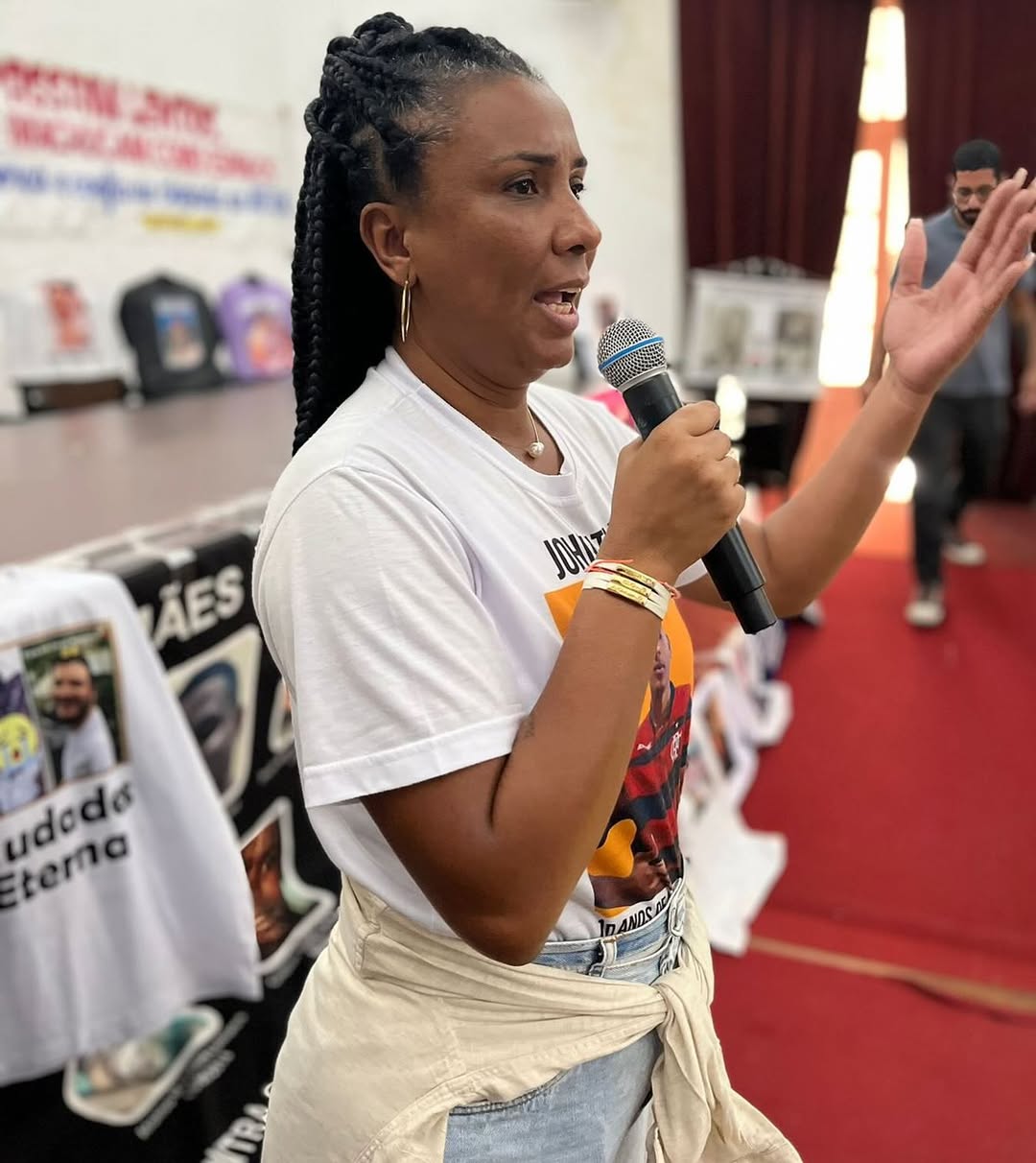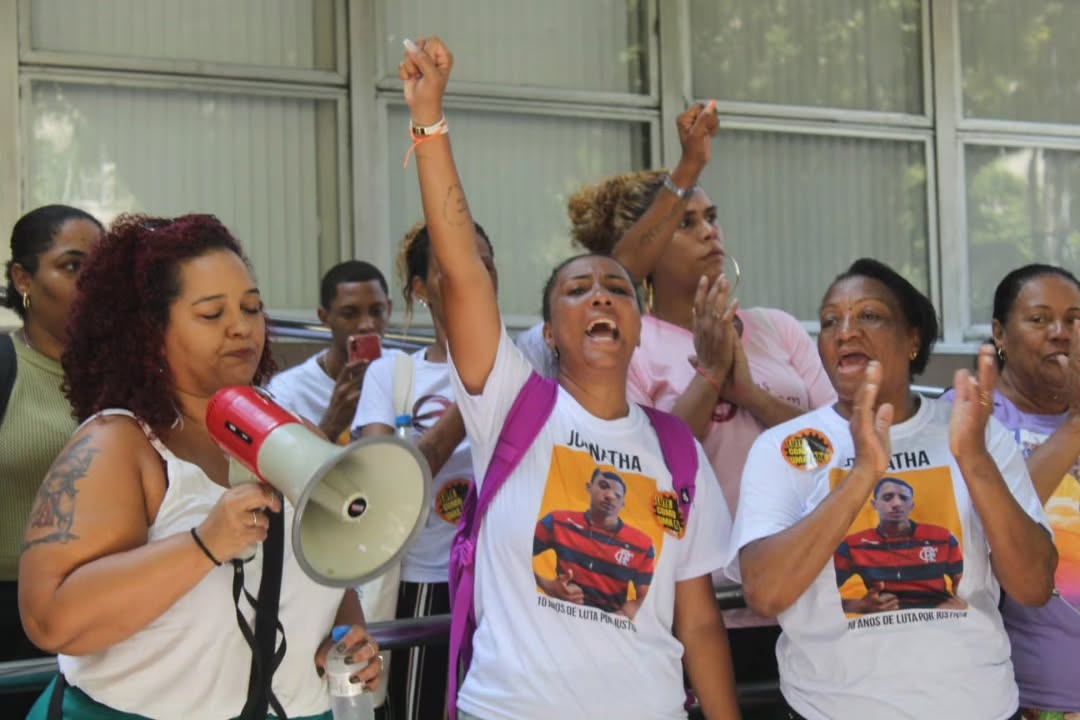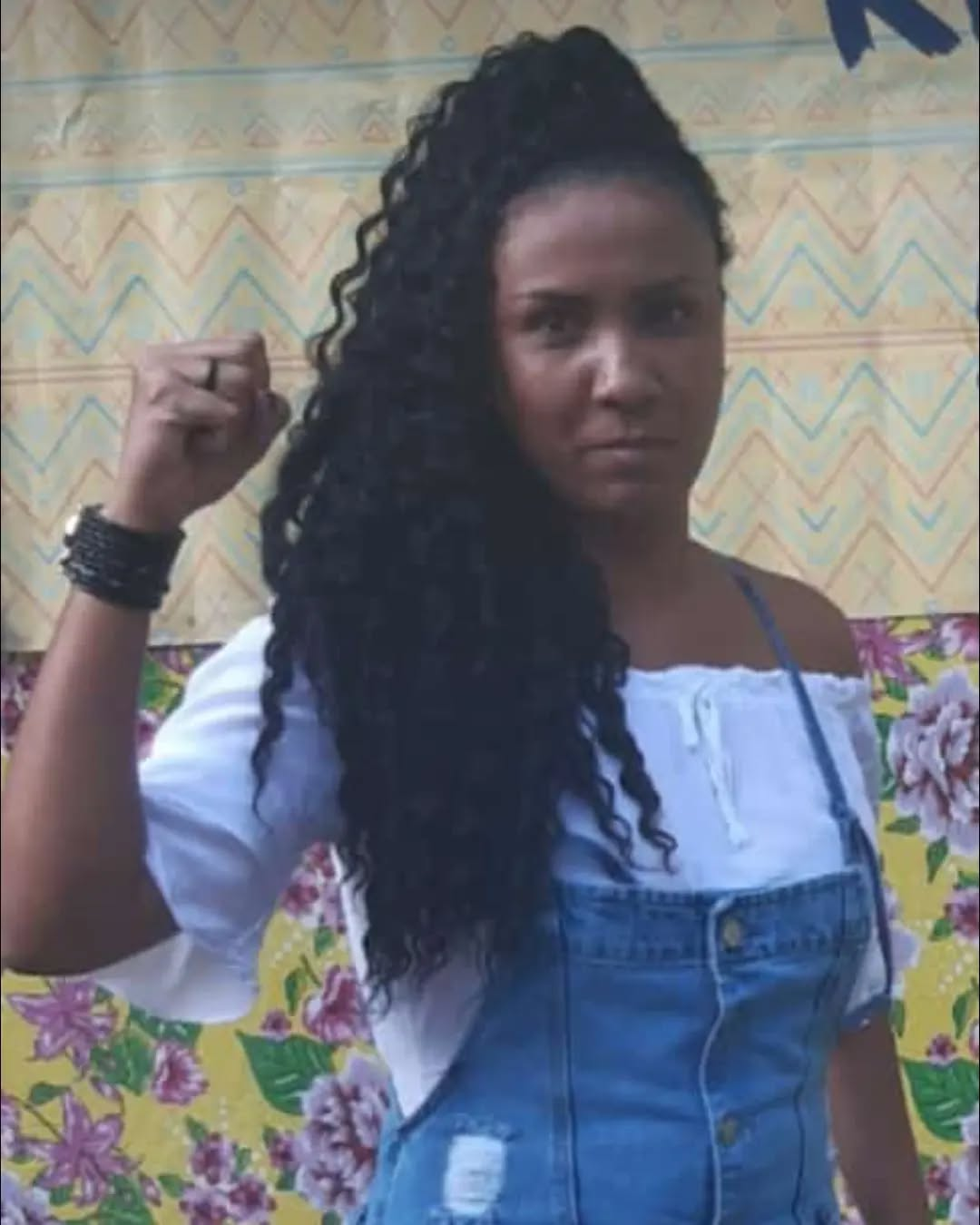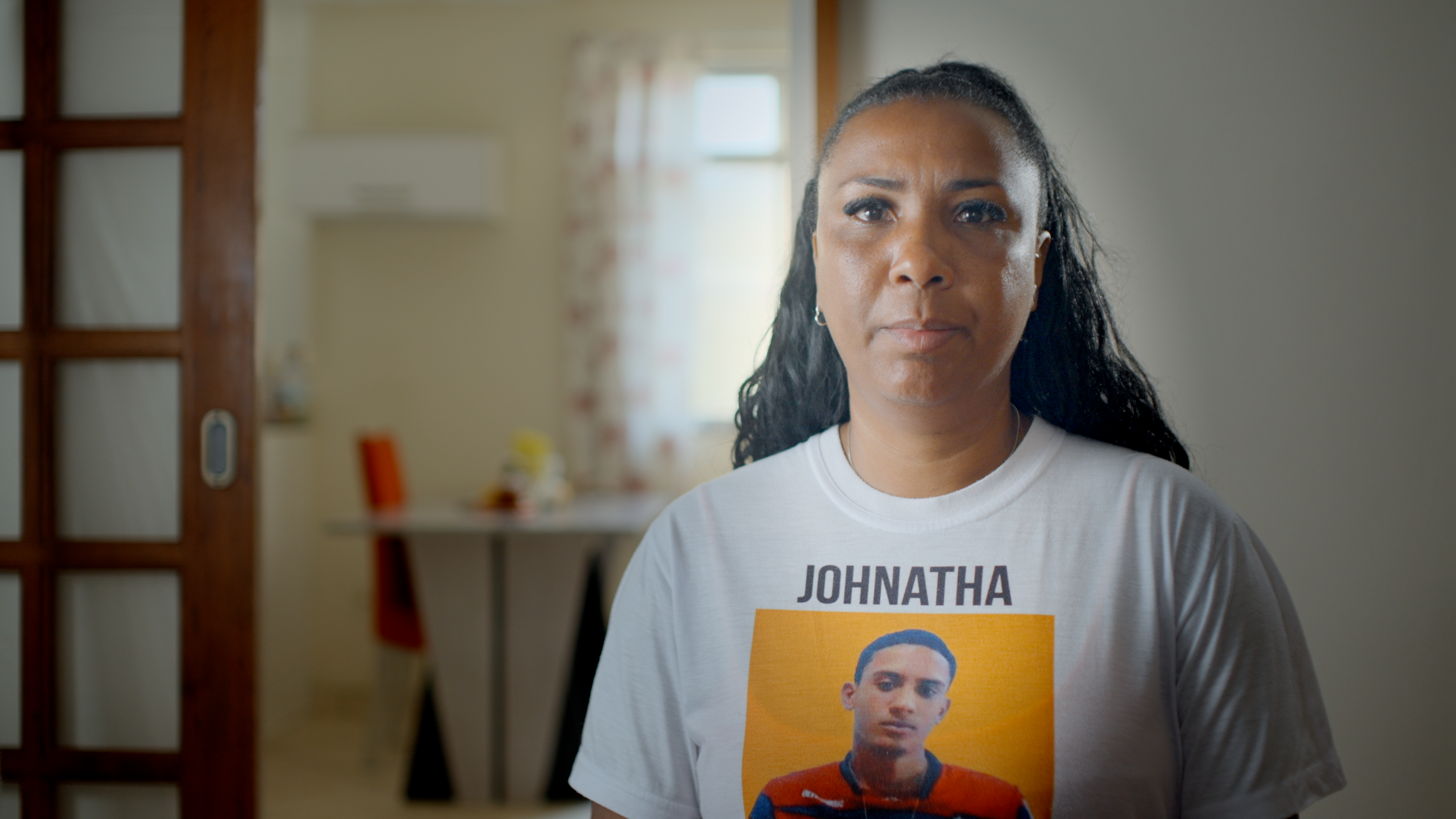I feel like a part of me died with my son. Through my fight I have found a way to maintain my maternal role. If I stop doing this, I will die”
Ana Paula Gomes de Oliveira is a 48-year-old black woman, mother, human rights defender, educator, and researcher who lives in the Manguinhos favela in Rio de Janeiro, Brazil. In May 2014, her son Johnatha was killed when police fired indiscriminately at residents protesting against police violence in the favela, hitting Johnatha in the back as he passed by. The narrative surrounding Johnatha’s murder was distorted by the media and the police, a common practice of criminalising victims of police violence when they are black and live in the periphery of Brazil. After a decade without answers and without justice, the jury in Johnatha’s killer’s trial, which took place in 2024, accepted a last-minute request from the defence to downgrade the crime from intentional homicide to manslaughter (without intent to kill).
In the decade since Johnatha’s death, Ana Paula Gomes de Oliveira has become an important advocate, activist, and inspiration for struggle, resistance, and courage against police violence and institutionalised racism. She co-founded the Mothers of Manguinhos (Mães de Manguinhos) movement, a collective of black women made up of mothers and family members who have had children and other relatives killed by law enforcement officials. The collective works for justice, memory and truth, and for the accountability of the State in cases of murder, deprivation of liberty and other types of police violence based on racism. It advocates for legislative and political reforms at the institutional level and offers solidarity, legal and emotional support to affected families and communities.
Ana Paula Gomes de Oliveira has played a key role in inspiring, resisting and organising mothers’ collectives throughout Brazil, one of the fastest growing social movements in the country. She is an active member of the Network for Assistance to Victims of State Violence (Raave), which offers psychosocial support to families and has successfully promoted legislative reforms aimed at combating systemic racism and providing more comprehensive support to the families and communities of victims. She was recently in Brasilia at the national seminar Mothers for Rights (Mães por Direitos), alongside mothers and organisations from various parts of Brazil, bringing forth complaints and proposals for public policies that provide access to victims of State violence, with an emphasis on police lethality, which is increasing every day.
Brazil is the country with the highest rate of deaths of human rights defenders. Despite the constant threats and intimidation she faces, Ana Paula Oliveira has taken her advocacy to the international stage, engaging directly with the United Nations.






